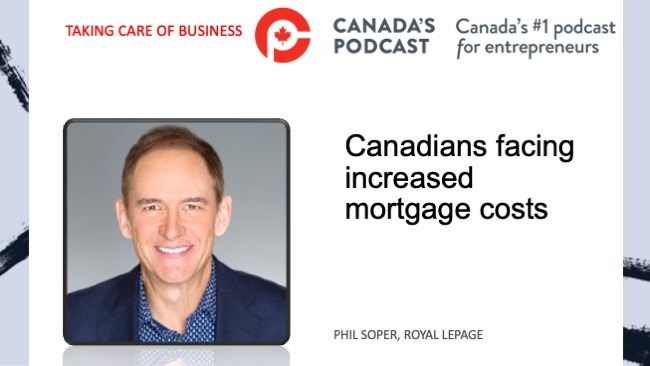
Paula Allen, TELUS Health, Global Leader, Research and Wellbeing, discusses the results of the latest Mental Health Index.

Paula Allen
In this video interview, Allen talks about how mental health remains a major concern in Canada, how one in five people are reducing spending on health-related expenses, such as prescription medication, the state of mental health in children and the impact remote work is having on people.
PRESS RELEASE
One-in-five people in Canada have cut back on health related expenses due to inflation
The latest TELUS Health Mental Health IndexTM finds that one-third of people in Canada avoid interacting with others; financial pressure is leading to relationship decline.
TORONTO – TELUS Health (formerly LifeWorks), today released its monthly Mental Health IndexTM revealing key insights on how inflation, financial pressure and inability to control emotions are impacting the mental health of workers in Canada. Notably, the Index found that 20 per cent of those surveyed have reduced spending on health-related expenses, such as prescription medication. Further, 19 per cent claimed financial pressure as the reason for a decline in relationships.
The Index found that workers in Canada are experiencing increasing strain with an unfavourable mental health score.
- The Mental Health IndexTM score for January 2023 is 64.8 points out of 100, a slight increase from December 2022.
Inflation and financial pressures are impacting the personal relationships of workers and their ability to seek healthcare
- Seven per cent of workers in Canada have cut back on prescription medications due to inflation. This group has a mental health score more than 18 points below the national average.
- Parents are 70 per cent more likely than non-parents to cut back on expenses related to their health.
- Individuals without emergency savings are more than twice as likely as those with emergency savings to cut back on health-related expenses.
- Nineteen per cent of working people cite financial pressure as the reason for their marital/partner relationship decline.
- Individuals with an annual household income lower than $100,000 are nearly 80 per cent more likely than those with a greater household income to report financial pressure as the reason for their marital/partner relationship decline.
Interactions with others and ability to control emotions have direct impact on workers’ mental health
- Thirty-two per cent of workers avoid being with or interacting with others, and 62 per cent say their avoidance started or worsened since the pandemic began. This group has a mental health score more than 13 points below the national average.
- Workers under 40 are 70 per cent more likely than those over 50 to avoid being with or interacting with others and are more than twice as likely to have difficulty controlling their emotions.
- Twenty-one per cent of workers in Canada have difficulty controlling their emotions, and 64 per cent said this started or worsened since the pandemic began.
- Parents are 50 per cent more likely than non-parents to have difficulty controlling their emotions.
Comments from TELUS Health Chief Operating Officer, Michael Dingle
“The current economic environment is leading many employees to feel pressure to prioritize finances over their health and wellbeing. This is an impossible choice as one is not mutually exclusive from the other – in fact, financial wellbeing is a fundamental contributor to overall health. Employers play a critical role in supporting the wellbeing of their employees, and can do so successfully by offering comprehensive Employee Assistance Programs (EAPs) that include health benefits and financial counselling.”
Comments from LifeWorks Global Leader and Senior Vice President, Research and Total Well-being, Paula Allen
“Our data shows that we continue to be under strain. A major concern is that the same strain often increases the behaviours that isolate us. The isolation then makes our stress worse. This is a cycle that can significantly worsen mental health. The best thing is to address the source of the strain and/or look carefully at how you respond. Counselling can help you see things more objectively, and leverage problem solving and stress management skills that you might already have, but have forgotten during stress. EAPs offer voluntary confidential support for a wide range of issues and can help prevent a negative cycle.”
The full Canadian LifeWorks Mental Health IndexTM report can be found here. This month, the report includes additional insights on remote work, wellbeing of children, and more.
LifeWorks is a wholly owned subsidiary of TELUS now operating as part of TELUS Health as a result of its recent acquisition.
About the Mental Health IndexTM
The monthly survey by TELUS Health was conducted through an online survey in English and French from January 17 to 24, 2023 with 3,000 respondents in Canada. All respondents reside in Canada and were employed within the last six months. The data has been statistically weighted to ensure the regional and gender composition of the sample reflect this population. The Mental Health IndexTM is published monthly, beginning April 2020.
The TELUS Health Mental Health IndexTM is based on a response scoring system that then turns individual responses into point values. Higher point values are associated with better mental health and less mental health risk. Scores between 0 to 49 correspond with distress levels, scores between 50 to 79 correspond with strain levels and scores between 80 to 100 correspond with optimal levels of mental health.
About TELUS Health
TELUS Health is a global healthcare leader serving people in more than 160 countries delivering both digital innovation and clinical services to improve total physical, mental and financial health and wellness across the full spectrum of primary and preventative care. By leveraging the power of technology to deliver connected solutions and services both in-person and virtually, TELUS Health is improving access to care and revolutionizing the flow of information while facilitating collaboration, efficiency, and productivity for physicians, pharmacists, health authorities, allied healthcare professionals, insurers, employers and people globally, progressing its vision of transforming healthcare and empowering people to live healthier lives.
Our clinical team is composed of renowned and passionate health professionals around the world delivering best-in-class people-centric care to hundreds of thousands of employers, professionals and their families.
 (Mario Toneguzzi is Managing Editor of Canada’s Podcast. He has more than 40 years of experience as a daily newspaper writer, columnist, and editor. He worked for 35 years at the Calgary Herald, covering sports, crime, politics, health, faith, city and breaking news, and business. He works as well as a freelance writer for several national publications and as a consultant in communications and media relations/training. Mario was named in 2021 as one of the Top 10 Business Journalists in the World by PR News – the only Canadian to make the list)
(Mario Toneguzzi is Managing Editor of Canada’s Podcast. He has more than 40 years of experience as a daily newspaper writer, columnist, and editor. He worked for 35 years at the Calgary Herald, covering sports, crime, politics, health, faith, city and breaking news, and business. He works as well as a freelance writer for several national publications and as a consultant in communications and media relations/training. Mario was named in 2021 as one of the Top 10 Business Journalists in the World by PR News – the only Canadian to make the list)About Us
Canada’s Podcast is the number one podcast in Canada for entrepreneurs and business owners. Established in 2016, the podcast network has interviewed over 600 Canadian entrepreneurs from coast-to-coast.
With hosts in each province, entrepreneurs have a local and national format to tell their stories, talk about their journey and provide inspiration for anyone starting their entrepreneurial journey and well- established founders.
The commitment to a grass roots approach has built a loyal audience with over 120,000 downloads and thousands of subscribers on all our social channels and YouTube. Canada’s Podcast is proud to provide a local, national and international presence for Canadian entrepreneurs to build their brand and tell their story.





